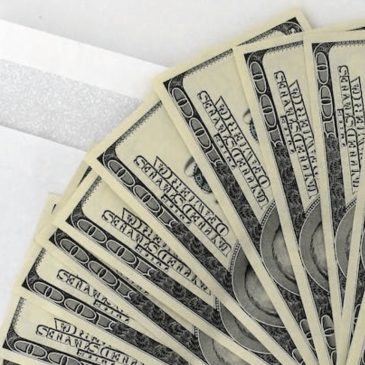Worried About How to Pay for Residential Solar Panels?
Choosing to go solar is a decision that shouldn’t be easier. After all, the promise of lower utility bills, more reliable electricity, and a reduced carbon footprint are just three benefits homeowners have to look forward to by having solar panels installed on their homes. But the truth is the one factor that so often gets in the way of many solar conversions is cost.
Luckily, today’s homeowner doesn’t have to cover the cost of solar upfront. There are various ways to finance your solar panels, so you can enjoy all the benefits of solar but with a lower monthly payment that fits within your budget. In fact, with the savings you get from your solar panels on your energy bill, you could even argue that your solar panels will practically pay for themselves.
If you are interested in solar, but want to learn more about your financing options, then this guide will help you better understand what types of financing are available and their pros and cons.
Using Personal Loans to Finance Solar
A personal loan is one of the best ways to finance your solar panels because this type of loan comes with a fixed interest rate, so your monthly payments won’t change over the life of the loan. Personal loans can also have higher limits or longer terms, which will help make it easier to pay for more expensive home improvements, like installing solar.
Personal loans often require no collateral and access to funds can be as quick as a few days, so if you need to loan processed quickly to get on the solar installer’s schedule, that won’t usually be a problem.
The biggest drawback to using a personal loan to finance your solar panels is that your rate depends on your credit rating. If you don’t have very good to excellent credit, then your interest rate may be higher than you wanted.
Fannie Mae and FHA Loans
Both Fannie Mae and FHA offer mortgage loans specifically designed for home buyers looking to finance the purchase their home and make certain home improvements in one loan package. Fannie Mae’s loan is called the Fannie Mae HomeStyle Renovation loan and it is very popular as it allows as much as a 97 percent loan-to-value ratio, thus making it easier to qualify for than some other loans.
The downside of using one of these loans is that they can come with higher interest rates, fees, and closing costs, and there’s usually a lot of red tape involved in the application. Another potential downside is that the remodeling work must be completed within 12 months of getting the money.
Home Equity Loans and HELOCs
A home equity loan or a home equity line of credit can be a good option if you have a lot of equity in your home and want to borrow against it to finance your solar panels.
Home equity loans work like personal loans, with fixed interest rates, fixed repayment timelines, and monthly payment amounts that don’t change, but the application process is considerably more involved that with a personal loan. HELOCs, on the other hand, provide you with a line of credit that works like a credit card, meaning that you can use the funds again and again after paying. The downside to using a HELOC is that these typically come with variable interest rates, so this means your payment could be higher of lower month-to-month depending on your account balance and the current interest rate.
Financing Your Solar Panel Installation Takes the Sting Out of Going Solar
If you could get solar panels installed on your home at a price that fits comfortably within your budget, why wouldn’t you jump at the chance? With the financing options listed above, most homeowners can now get the solar systems they’ve been desperately wanting without having to come up with the money to cover the cost upfront.
Further, with the savings you’ll enjoy on your monthly energy bills, your monthly solar payment obligation won’t be as high as you think. More reliable energy that’s sustainable and clean, reduced environmental impact, and extra money in your pocket are hard to argue against. Take advantage of everything solar has to offer and enjoy greater peace of mind by discussing your financing options with your solar installer.

